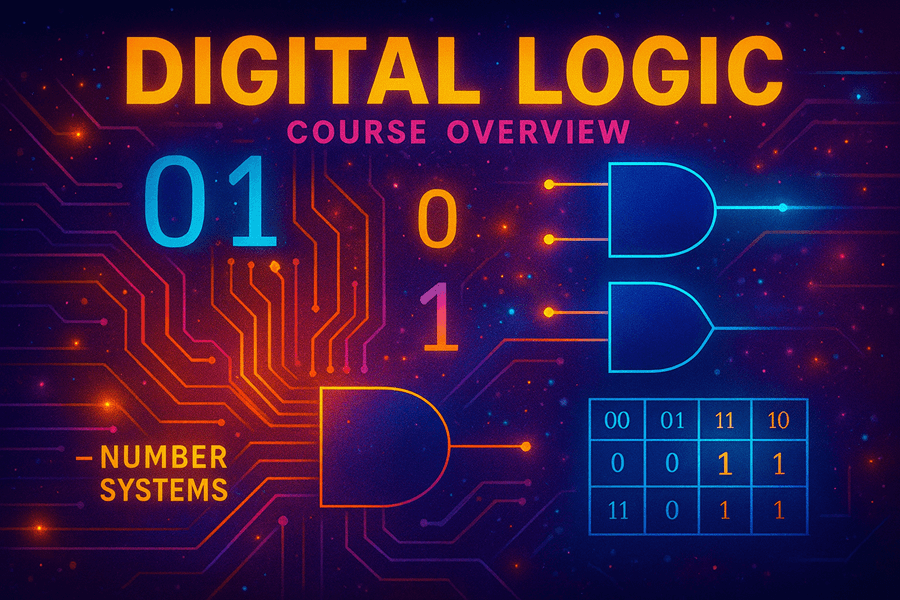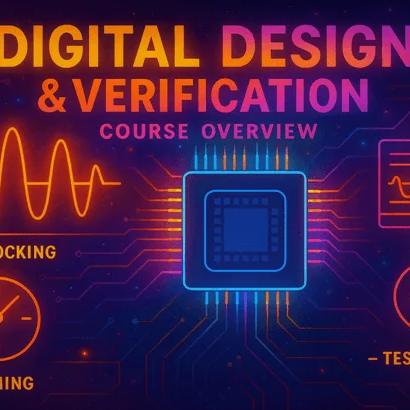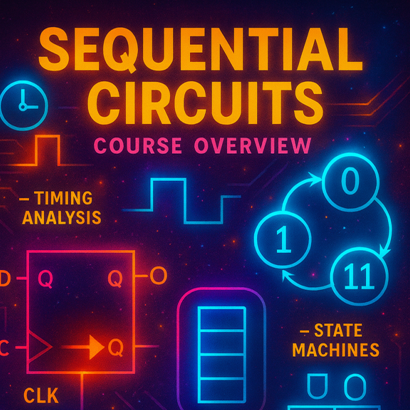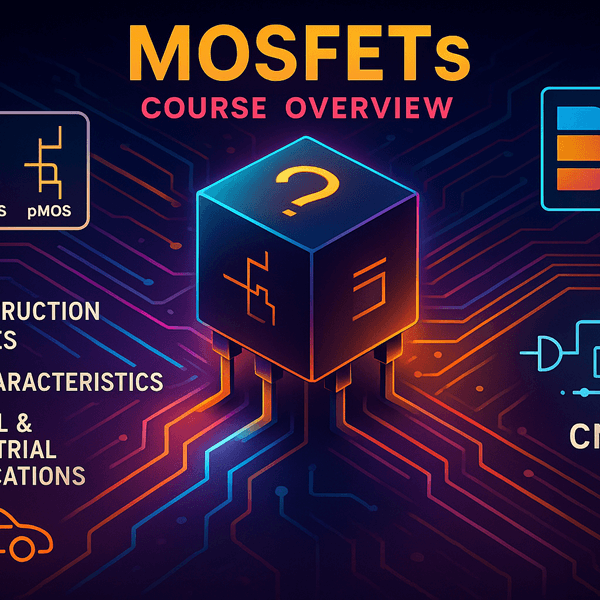Description
This course introduces the fundamental building blocks of digital electronics, which form the basis of all digital design and VLSI systems. Participants will gain a strong understanding of number systems, Boolean algebra, combinational logic design, and optimization techniques. The focus will be on applying these principles to real-world digital circuit problems and laying the foundation for advanced electronics and VLSI designconcepts.
The course also emphasizes the ability to analyze circuits, minimize logic designs, and apply inspection/test techniques to ensure circuit integrity and functionality.
➢What You’ll Learn
- Understand and apply number systems, arithmetic operations, and base conversions.
- Simplify logic functions using Boolean algebra and Karnaugh Maps.
- Design and analyze logic circuits with gates, multiplexers, encoders, and decoders.
- Implement universal gates and perform logic minimization effectively.
- Demonstrate competency in using digital circuit fundamentals as a prerequisite for VLSI system design.
➢ Skills You’ll Gain
- Mastery of digital number systems: Understand and manipulate various number systems, including binary, hexadecimal, and codes like Gray and BCD.
- Logical reasoning and Boolean algebra: Develop strong skills in simplifying and minimizing logic functions using Boolean algebra and Karnaugh Maps.
- Design and analysis of digital logic circuits: Gain proficiency in designing combinational logic circuits using gates, multiplexers, encoders, decoders, and code converters.
- Circuit optimization techniques: Learn gate-level minimization and use of universal gates to optimize circuit design for efficiency.
- Foundational knowledge for advanced digital design: Build a solid base essential for higher-level digital, VLSI, and embedded system design courses.
- Inspection and test methods awareness: Acquire the ability to ensure digital circuit functionality and integrity through key test methods and automated inspection systems.
- Problem-solving and troubleshooting: Enhance your skills in analyzing circuit behavior and identifying issues related to digital logic design.
➢Target Audience
- Beginners in electronics and digital systems.
- Students or professionals looking for prerequisite knowledge before entering advanced digital design or VLSI design fields.
- Individuals seeking to strengthen their foundation in digital electronics before pursuing topics such as sequential circuits, system-level design, or semiconductor devices.
➢Modules & Duration (Total: 9 Hours)
- Introduction to Number Systems – 45 min
- Number System Arithmetic – 45 min
- Boolean Algebra Fundamentals – 1 hour
- Karnaugh Map and Logic Minimization – 1 hour
- Basic Logic Gates Overview – 45 min
- Universal Gates and Gate-level Minimization – 1 hour
- Combinational Logic Circuits Basics – 1 hour
- Multiplexers and Demultiplexers – 1 hour
- Encoders and Decoders – 45 min
- Code Converters – 45 min
These topics focus on building foundational knowledge in number systems, logic simplification, circuit design using gates and combinational logic, and code conversion techniques—essential for digital design and VLSI foundation.
➢ Time duration 9 Hours (Modules 1–10)





Reviews
There are no reviews yet.